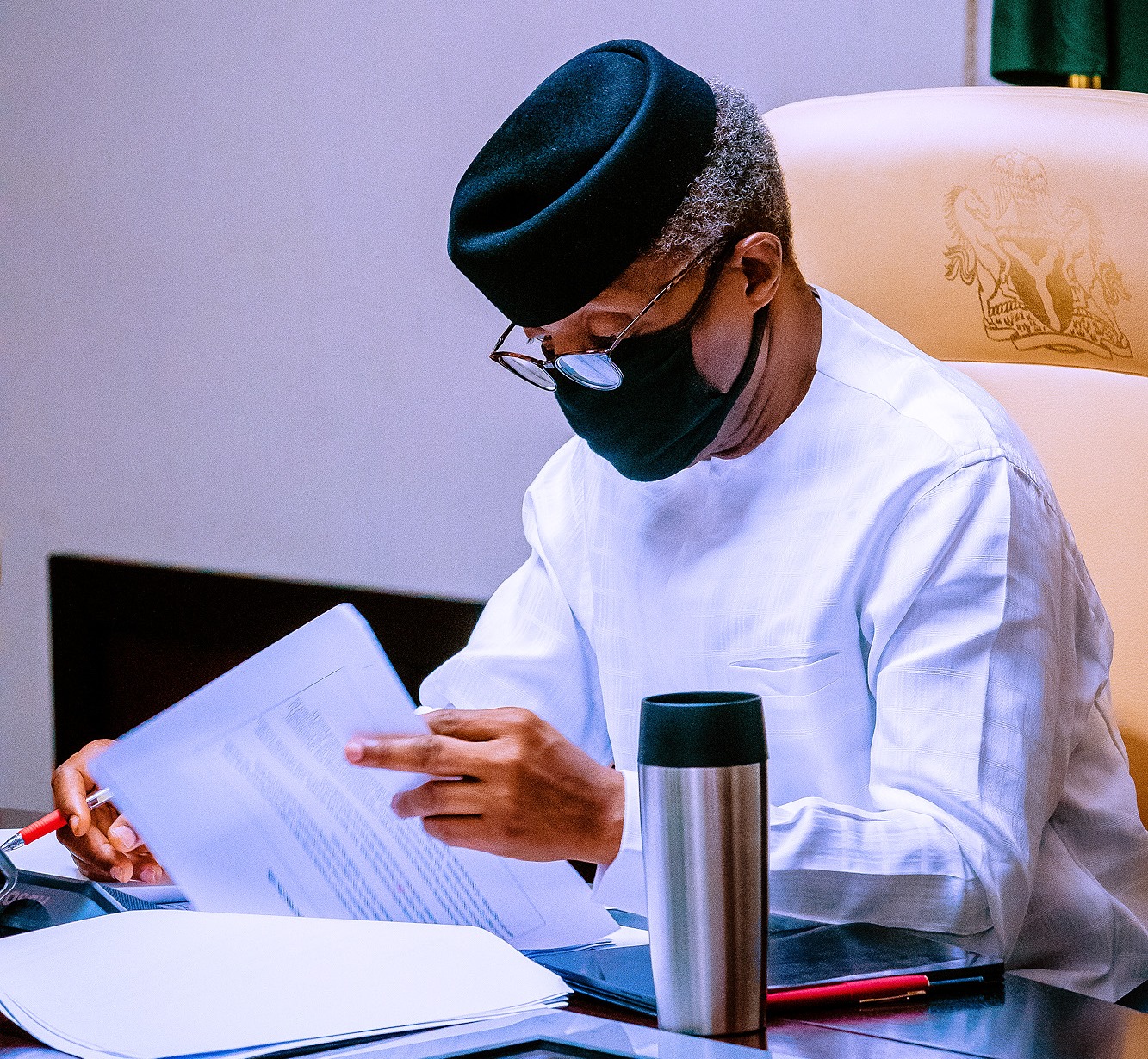
By Mohammed Momoh
President Muhammadu Buhari has described the work of the Osinbajo led-Economic Sustainability Committee (ESC) as a “National Plan” as the country focuses on local production, manufacturing, support for the informal sector and MSMEs and expansion of the Social Investment Programme.
Vice President Osinbajo presented the report on Thursday in Abuja, elicitibng Buhari to say: “I’m pleased to hear that the Economic Sustainability Committee consulted with all the National Economic Councils and the National Assembly, and I look forward to our continued partnership with one focus to implement what I consider a national plan.”
Osinbajo had earlier reported that the Committee was motivated by Buhari’s “directive to come up with a Plan that would provide succour to Nigerians, taking into account the dangers posed to the economy by the global economic slowdown, which also resulted in a drastic fall in crude oil production and prices, with serious implications for government revenues and foreign exchange earnings.”
Osinbajo said that the Committee decided on a strategy hinged on President Buhari’s mantra to “produce what we eat and consume what we produce”.
“In other words, to create millions of new jobs, we need to focus on encouraging local production, local services, local innovation, and emphasize the use of local materials.
“Nigeria and Nigerians can produce our food, build our houses and construct our roads, using local materials in all cases. If we must import, it must be to support local production. We have therefore recommended that we must carry out mass programmes that create jobs and utilise local materials.”
Highlights of the Osinbajo ESC Plan:
• Strategy hinged on Mr. President’s mantra to “produce what we eat and consume what we produce”. In other words, to create millions of new jobs, we need to focus on encouraging local production, local services, local innovation, and emphasize the use of local materials
• A Mass Agricultural Programme; which is expected to bring between 20,000 and 100,000 hectares of new farmland under cultivation in every State of the Federation and create millions of direct and indirect job opportunities.
• Extensive Public Works and Road Construction Programme focusing on both major and rural roads and using locally available materials like limestone, cement and granite.
• Mass Housing Programme to deliver up to 300,000 homes annually, engaging young professionals and artisans who form themselves into small and medium scale businesses within the construction industry, using indigenous labour and materials.
• Installation of Solar Home System, targeting 5 million households, serving about 25 million individual Nigerians who are currently not connected to the National Grid.
• Support for local production and manufacturing of all that is possible, including tech apps, software, shoes, garments, steel fabrication, ceramics and furniture, with the required capital and essential machinery.
• The provision of ample support for the informal sector through low interest loans and by easing procedures for registration, licensing, obtaining permits, etc. By these means, urban and informal business people like mechanics, tailors, artisans, and petty traders, will be encouraged to improve and develop their services.
• Support for MSMEs, especially in assisting to restructure their loans with banks. Among others, this will assist businesses in the pharmaceutical, aviation, hotels and the hospitality industry, private schools, road transportation, technology companies, and the creative industry, amongst others.
• Facilitation of broadband connectivity across the country and creation of a wide variety of technology and ICT jobs.
• Expansion of the Social Investment Programme, through an increase in the number of cash transfer beneficiaries, N-Power volunteers and sundry traders enjoying small and micro loans through the MarketMoni and TraderMoni schemes. The pre-existing conditional cash transfer will also be extended to cover a larger number of the extremely poor.














